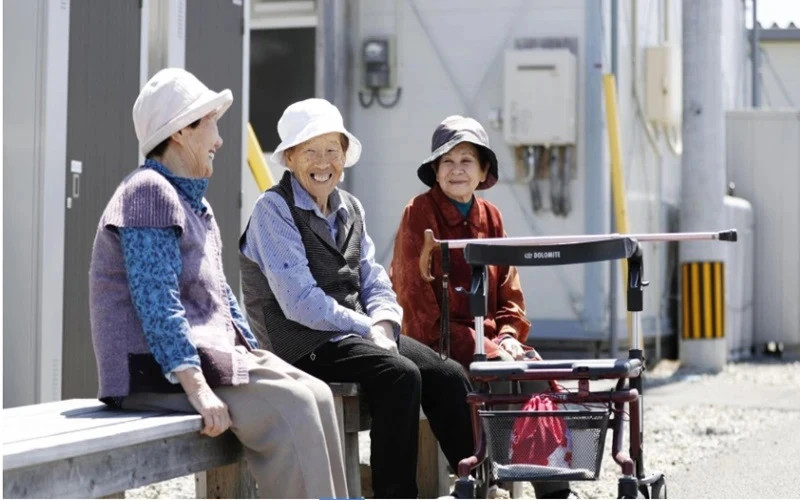Finding a solution to the demographic problem is an important key to maintaining stability and development for the two Northeast Asian countries.
Abandoned houses in Japan are known as "akiya", a term for derelict houses in remote rural areas of the country. However, more and more "akiya" are appearing in big cities like Tokyo and Kyoto.
Survey data recently released by the Japanese Ministry of Internal Affairs and Communications, shows that the number of abandoned houses in this country has increased by about 80% in the past 20 years, to a record high of nearly 9 million.
Jeffrey Hall, a lecturer at Kanda University of International Studies in Chiba, said that the problem is not building too many houses but not having enough people. This is a warning signal of serious population decline in Japan.
Stories related to population ageing are not only in Japan but also in many Asian countries.
This year, Bugye Elementary School in the Korean city of Daegu only welcomed one first-grade student.
Worryingly, this is a common situation in the RoK. Over 150 elementary schools in the RoK have no first-grade students enrolled this year. Many schools were forced to cancel opening ceremonies or even close because there were no students. In 2024, only 369,000 children will register for primary school, marking the lowest number of students entering first grade since statistics began in 1970.
The above facts show a gloomy picture of the deepening demographic crisis in the two Northeast Asian countries.
In a recent speech, Korean President Yoon Suk Yeol emphasised that the low birth rate can be considered a national emergency. The government has worked hard over the years to reverse this worrying trend, but the RoK still has the lowest birth rate in the world.
Over 150 elementary schools in the RoK have no first-grade students enrolled this year. Many schools were forced to cancel opening ceremonies or even close because there were no students. In 2024, only 369,000 children will register for primary school, marking the lowest number of students entering first grade since statistics began in 1970.
The RoK posted a 0.72 birth rate in 2023, setting another record low. This is far below the 2.1 children needed to maintain the current population of 51 million. At these rates, South Korea's population will nearly halve to 26.8 million by 2100.
The story of Japan's demographic crisis is similar to the Korean case when Japan's child population fell for the 43rd straight year to a fresh record low. Accordingly, the ratio of children to the country's total population fell 0.2 percentage points to 11.3 per cent, the lowest level since 1950.
The fact that average life expectancy is increasing while the birth rate is decreasing further promotes population ageing. The ageing population in the RoK is at an alarming rate, with about 30% of the population expected to be 75 years old or older by 2073.
Experts say that the demographic crisis has become the leading risk to economic growth, as well as the social welfare systems in Japan and the RoK.
The RoK's Ministry of Employment and Labor emphasised that Korea must add 900,000 more workers to its total labour force by 2032 to maintain an economic growth rate of 1.9-2.1 per cent.
Meanwhile, recently published survey results by Teikoku Databank showed that more than 300 businesses were forced to cease operations in fiscal 2023 (ending March 31, 2024) due to a lack of employees. The Japanese government estimates that by 2050, elderly care costs will increase by 75%, compared to 2019 levels.
Population ageing is considered a major challenge for the economies and societies of Japan and Korea. Governments worldwide are implementing more measures and policies to improve the situation.
President Yoon Suk Yeol has just announced plans to establish a new ministry to overcome the low birth rate. The Japanese government has given the go-ahead to pass a bill strengthening measures to tackle the falling birthrate.
United Nations Secretary-General Antonio Guterres noted that population ageing is a major challenge to the economy, society and environment, as well as ensuring people's quality of life. Developing proactive and comprehensive response measures is a necessary step to limit the negative impacts of this crisis.
















